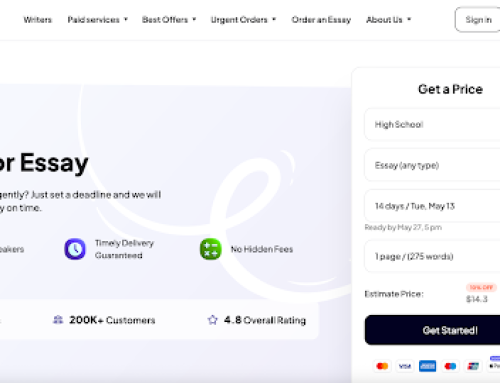The traditional office routine is slowly fading, and data science remote work is leading the charge. Nowadays, you can find exciting opportunities or develop your career even if you don’t live in a tech hub. Working remote provides data professionals flexibility, control over their schedules, and the ability work from anywhere in the world.
Can you picture being able to get back hours each week by eliminating the daily commute? Hours you could be spending to learn something new, work on fascinating projects, or just enjoy life. This revolution isn’t just a convenience, it’s a voracious change in how data tree scientists are thinking about the career they want and how they can incorporate their passions.
Revolutionary Career Paths in Data Science Remote Work
Remember when your career path felt like a straight, narrow highway with no exits? Those days are over. Remote work has blown the doors wide open, creating career possibilities that would’ve sounded like science fiction a decade ago.
Emerging Hybrid Career Models for Data Scientists
Here’s where things get really interesting. Smart professionals aren’t choosing between full-time employment and freelancing anymore—they’re doing both. You might spend mornings consulting for a European fintech company and afternoons building AI models for a startup in Austin.
These hybrid approaches give you financial security with creative freedom. Think of it as having your cake and eating it too. Many remote data scientist jobs allow professionals to pursue side ventures, creating multiple income streams that traditional employers would never permit.
Traditional Office-Based Roles vs. Remote Data Science Opportunities
Visualize this: You’re confined in a cubicle, staring at the clock, navigating office politics, and your biggest career change hinges on your manager’s mood. Now, imagine working with leading companies from all over the world from the dining room table in your home. The gap between the traditional office job and remote data scientist jobs is like comparing a horse-drawn carriage to a Tesla.
An office job ties you to certain places and timeframes. Want that dream job in in San Francisco? You better be ready to pay $4,000 for a box apartment. Remote jobs? You get to work with companies in Silicon Valley while drinking coffee on the beach in Thailand.
Global Talent Pool Access Through Remote Work
Geography used to be destiny in your career. Born in a small town? Tough luck accessing top-tier opportunities. Remote work has completely demolished these barriers. You can now collaborate with the smartest minds globally without leaving your hometown.
Financial Impact of Remote Data Science Jobs on Career Trajectories
Let’s talk money—because that’s probably what you’re really wondering about. Remote data science work isn’t just changing where you work; it’s transforming your entire financial landscape.
Salary Benchmarks Across Geographic Boundaries
Here’s the beautiful thing about remote work: you can earn New York salaries while living in Nashville. Geographic arbitrage isn’t just a buzzword—it’s a legitimate wealth-building strategy. Companies are increasingly adopting location-agnostic pay structures because they’ve realized talent quality has nothing to do with your address.
Cost-of-Living Arbitrage Benefits for Remote Data Scientists
Beyond salary considerations, remote work eliminates massive expense categories entirely. No more $200 monthly parking fees, $15 daily lunch tabs, or expensive “office appropriate” wardrobes. These seemingly small savings add up to thousands annually.
Housing represents the biggest opportunity. You could reduce your living expenses by 50% or more by choosing locations based on lifestyle preferences rather than job requirements. That extra money? It goes straight toward investments, travel, or whatever matters most to you.
Essential Skills Transformation for Work from Home Data Science Success
Technical skills alone won’t cut it in remote data science. Success requires mastering a completely different skill set that most traditional education programs ignore entirely. Consider this: AI/Machine Learning Engineer positions grew by 41.8% year-over-year, making it the fastest-growing job in the field
Expertise in Digital Communications for Remote Data Teams
Say goodbye to office gossip and spontaneous whiteboard time. All remote-based data scientists must elevate communicating to an art form, carefully expressing highly technical concepts through written documentation and visual presentations for non-technical stakeholders.
As part of that art form, you should also embrace and master asynchronous communication in your team, meaning the ability to update on projects, verbalize your thinking around analytical choices, and work with project teams across time zones while avoiding back-to-back meetings.
Cloud-Based Tool Knowledge Base Requirements
Desktop-based tools are effectively extinct within the world of remote-based data science. Full stop. Cloud-based platforms like AWS, Google Cloud and Azure are no longer luxuries; they are requirements. Version control systems, containerization technologies, and collaborative coding platforms will become your mundane, everyday activities. Ignoring new workflows, particularly those that are cloud-native, means putting yourself at risk outside the bounds of survival.
Developing Self-Management and Productivity Optimisation Skills
Nobody is standing over your right shoulder whispering in your ear to “stay on task.” Success in a remote environment depends on a strong sense of self-discipline, creating structured routines, and optimizing your home worksite. Understanding the multitude of potential distractions – social media, household chores, and that fascinating documentary you have been putting off watching – can be overwhelming
Amongst the distractions, you are responsible for overseeing project management to prioritize tracking deliverables, providing proactive updates, and maintaining multiple projects that have reached concurrent timelines.
Strategic Career Transition Planning for Data Science Career Change
Transitioning to remote data science work requires strategic planning beyond simply updating your resume and applying to job postings.
Portfolio Development for Remote Job Applications
Since remote hiring managers cannot see your work habits, they depend on portfolios more than your traditional jobs would. For instance, your GitHub repositories should contain clear code, extensive documentation, and reproducible code reproducing showing that you can take a project from start to finish.
Networking Strategies in Virtual Data Science Communities
Virtual networking will use completely different approaches to building a network in a new place than simply attending a conference. For example, if you contribute to open-source projects and write a technical blog, people will take you more seriously professionally than if you simply collected business cards at events.
Certification and Upskilling Pathways for Remote Readiness
Remote employers prefer actual, demonstrable skills over traditional education and credentials. Employers put less value on traditional degrees than they do on cloud platform certifications, if you have experience with specialized tools, and specific real-world experiences in a specific industry.
Personal Branding for Global Remote Data Science Markets
Global remote markets require more clear personal branding strategies that can communicate a unique value proposition across culture and language barriers.
Your Questions About Remote Data Science Careers
- How long is the average time frame of remote data science work transition?
The transition becomes successful in three to six months with focused work depending on the level of skills and networking strategies of most people.
- Which specializations in remote data science are the most well paid?
AI/Machine Learning engineering, quantitative finance and healthcare analytics are all well-paid, even higher than $150K/year in a senior position.
- Are remote data scientists going to need other technical skills than on-site workers?
We will be under pressure to acquire cloud computing, version control and collaboration tools over the Internet since they are not typically needed on-site, but other analytical capabilities do not change.
Making Your Remote Data Science Career Transition
The transformation of data science remote work represents a fundamental shift in career development and professional growth. Remote opportunities provide unprecedented access to global markets, competitive compensation, and flexible lifestyles that traditional office roles simply cannot match.
Success requires strategic planning, skill development, and cultural adaptation, but the rewards justify every bit of effort invested. This isn’t just changing individual careers—it’s reshaping the entire profession for the better.





